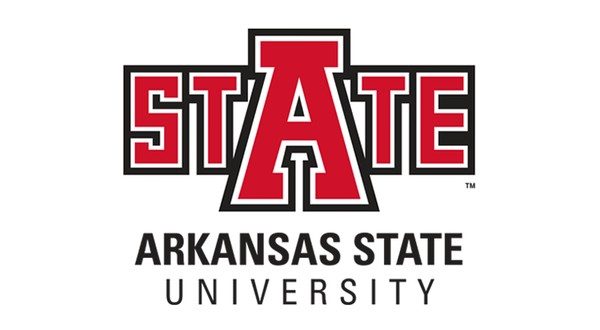
Arkansas State University students may soon be able to focus on certain themes in their general education classes, depending in part on results of a pilot program during the spring 2023 semester.
General education courses are the core requirements for all degree programs, and the concept of themed work or teaching approaches within required courses is designed to provide new interest areas for students, according to the university. “Technology and society” and “creativity and problem solving” are the two themes for the pilot semester.
“Technology and society” and “creativity and problem solving” were selected by faculty members from several other thematic possibilities, said David Harding, associate professor of political science and chairperson of the pilot study committee. He added that the themes should prove attractive to students. A dozen faculty members from seven different departments will participate in the spring pilot, and Harding said he expects more than 400 students to take part.
Some of those students will have done so intentionally, while others will “just wind up there” because they selected courses that are part of the pilot for any number of reasons, he said.
“They might need that class to graduate, or it fits into their schedule, or they like the professor, or they’re interested in the course,” he said.
Feedback from students and faculty members in the pilot courses will inform plans for the fall, when the current plan is to add two more themes, he said. “This could change, but it’s likely the two will be ‘diversity and globalization’ and ‘health and well-being,'” he said.
, it’s like a vending machine in a cafeteria, with 50 different buttons — some people just want a plain Coke, but others want cherry Coke or vanilla Coke.”
If a student excels in, say, creativity and problem solving, and is intent on a career that utilizes those skills, the student may want to chart that course through general education classes, he said. Eventually, students who complete a certain amount of general education courses under a select theme could receive recognition for it, such as a line on their transcript, a certificate or even a cord at commencement.
The thematic approach should make these classes “more attractive” for students, said Chancellor Todd Shields. “It’s still the core concepts but packaged in a way kids like.”
Plans to revamp the general education model began in 2019 because the general education program “doesn’t have a real identity on campus,” and many students view those courses as “a hurdle, not an opportunity,” Harding said. The themes idea was “the one that stuck” out of various changes suggested, and “there will be a lot of project-based learning” for students under the thematic approach.
“I hope the students are as excited about these courses as the professors are,” Harding said. “We see this as a great recruiting tool for the university, and we think it’ll help with retention, because students who see these classes as something they want to do — rather than have to do — will want to be [in class] and make better grades.”
The state requires these core courses, “and I believe in” them, but colleges have done a poor job explaining to students — especially those who already know what they want to study and do for their careers — why general education classes are necessary, Shields said. Math majors may wonder why they have to take an art class, and theater majors wonder why they need to take a science course, for example, but general education courses build “critical thinkers and leaders,” and that will only be enhanced by the thematic approach.
are related, and faculty will collaborate more, instead of me being in this building, doing my own thing, and you in another building, doing your own thing.”
The thematic courses are taught by faculty members who have volunteered to participate in the pilot program, Harding said. This summer, faculty members will again have a chance to sign up for thematic courses for the fall 2023 semester, and they are paid a stipend for making these alterations to their courses.
WebReadyTM Powered by WireReady® NSI










